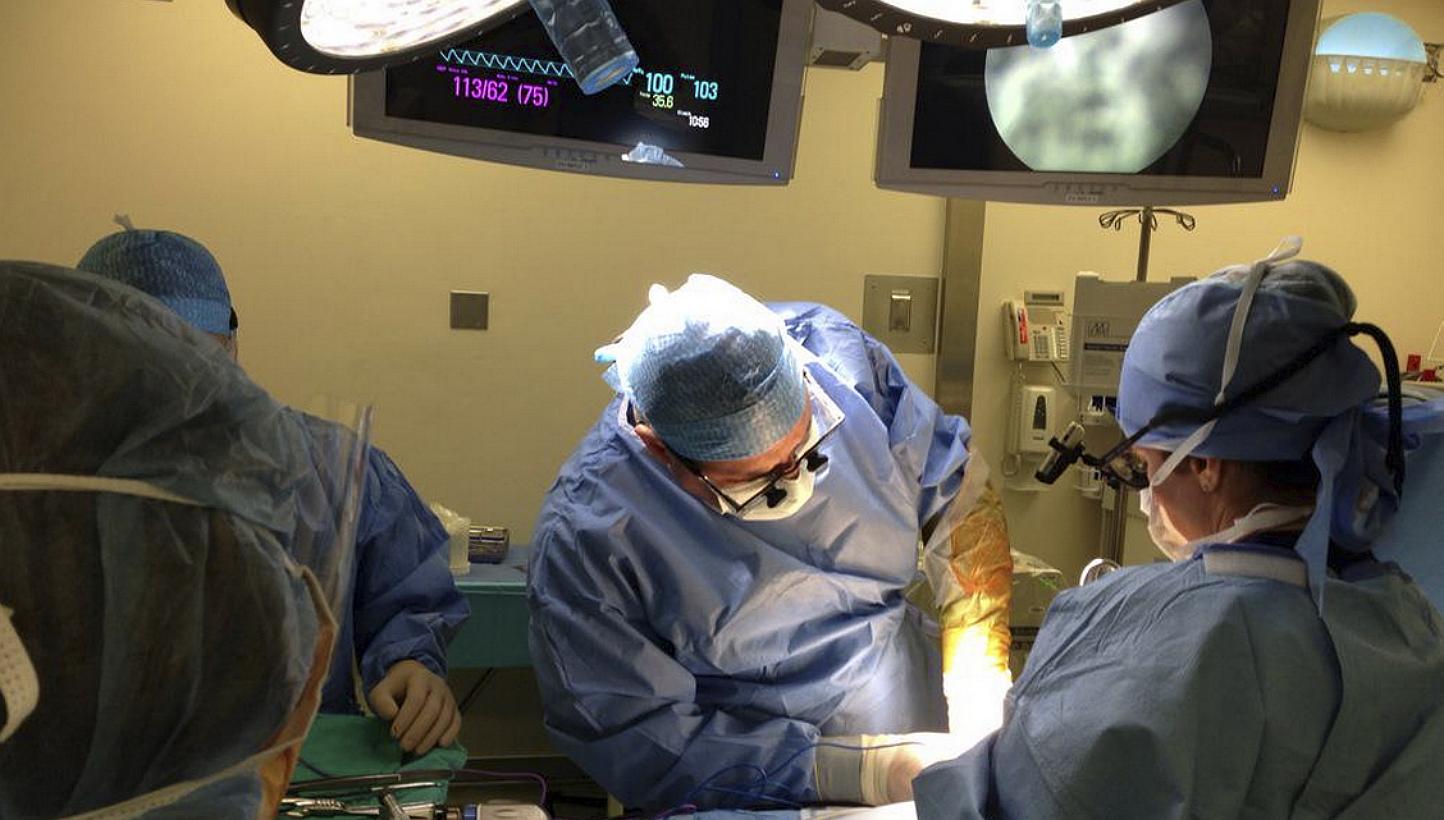Organ donation: Wasted opportunity to save lives
Sign up now: Get ST's newsletters delivered to your inbox

In Singapore, only 17 cadaveric kidneys were available last year for transplant. This is dismal, compared with the top five countries - Croatia, Spain, France, Austria and Norway. They get 50 kidneys per million population. -- PHOTO: REUTERS
Follow topic:
The Budget debate wound down this week. It took up a lot of government and Parliamentary resources, and lots of newsprint and bandwidth. Its announcements are important and will improve, and change, lives.
But this week, I want to use my Sunday blog to highlight two commentaries that appeared in The Straits Times' Opinion pages.
They might have slipped under the attention radar as a result of the mega-focus on the Budget, but they concern matters of life and death.
Literally.
The first is a commentary by Senior Health Correspondent Salma Khalik that put the spotlight on the wasted potential of organ donation.
Singapore has a Human Organ Transplant Act that makes organ donation automatic, although one can opt out.
As Salma writes, it allows the kidneys, heart, liver and corneas to be removed and used for transplant when a person dies, unless the person has opted out, is a minor or is mentally disordered.
Yet, in Singapore, only 17 cadaveric kidneys were available last year for transplant.
This is dismal, compared with the top five countries - Croatia, Spain, France, Austria and Norway. They get 50 kidneys per million population.
"If Singapore could achieve that rate, there should be more than 250 cadaveric kidneys available for transplants each year.
Instead, only 17 were available last year."
Instead, only 17 were available last year."
It's the same for livers.
Why is this the case, when Singapore's laws allow for harvesting of organs?
Salma writes: "Transplant surgeons say one common factor in countries with a low retrieval rate is the lack of buy-in by other doctors, particularly those working in the intensive care unit.
"To be usable, a liver has to be taken from the body before the heart stops beating. This means doctors must verify brain death in a patient and alert the transplant team.
"Instead, doctors often just tell the family there is no hope and, with their permission, pull the plug on the life support system and allow the heart to stop.
"By doing so, perhaps without realising it, they have also pulled the plug on a patient with imminent liver failure, and perhaps another patient facing heart failure."
The result is that many people here die waiting for transplants.
Reading the piece, I was aghast at the wasted opportunity to save lives. More outreach to incentivise doctors to harvest organs is needed, as is a campaign to educate family members.
It is literally a matter of life and death.
The second critical commentary is by Dirk de Korne.
Titled "My friend's tragic run of depression" it tells the story of Dirk's friendship with a man John (not his real name).
John, a Singaporean, made Dirk, a foreigner, feel at home in Singapore. They hung out at Old Airport Road hawker centre for meals and went for runs together.
John battled depression for many years and was on medication. And one day, he overdosed on his medication and died. His body was found in a park at Punggol last month.
Dirk writes movingly of what is needed to support a friend with a mental condition.
First, "a mental illness is an illness, not a character flaw. It has nothing to do with being weak or lacking willpower. Although people with mental illness can play a big part in their own recovery, they did not choose to become ill."
Dirk wanted to share John's story, with the permission of John's family, to raise awareness of mental disorders.
"As the Singapore Association for Mental Health (SAMH) advises, we can do much to support our suffering family or friends.
"This includes: learning about the disorder and the recovery process; being hopeful, respectful, encouraging and supportive; not dismissing emotions.
"Understand the person's perspectives and offer hope; encourage the person to seek and sustain professional treatment; do not ignore comments about suicide. Work together with the help of professionals to reduce the risk of suicide; revise expectations and set realistic goals; and practise good self-care."
In a word, be present. Don't avoid someone because he or she is mentally unwell. Learn about the condition and continue talking and engaging. Remain a friend.
muihoong@sph.com.sg
HELPLINES
If you or someone you know needs help on a mental health issue, you can find help here:
If you or someone you know needs help on a mental health issue, you can find help here:
SAMH helpline on 1800-283-7019, or go to www.samhealth.org.sg; IMH helpline on 6389-2222, or go to www.imh.com.sg; Samaritans of Singapore on 1800-221-4444, or go to sos.org.sg

